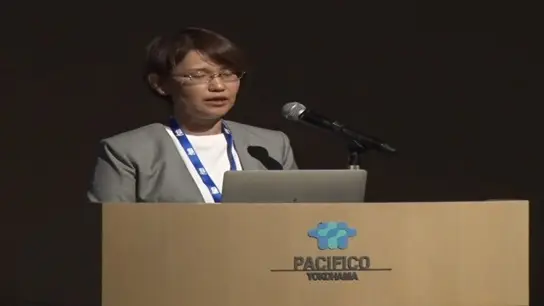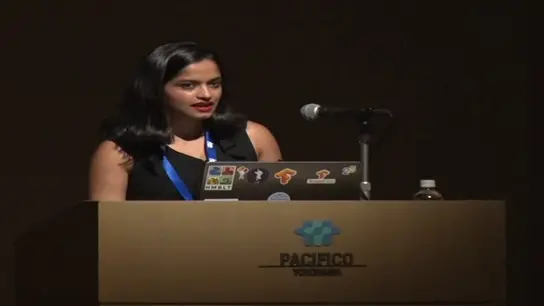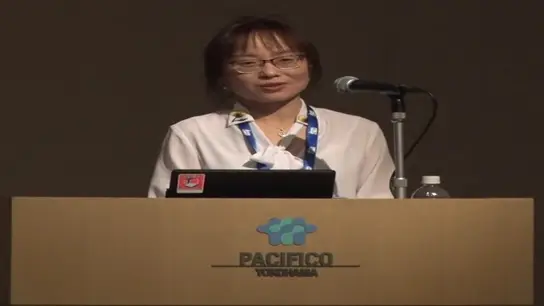-
Members: FreeCIS
IEEE Members: Free
Non-members: FreeLength: 01:00:22
16 Apr 2013
Abstract: The setting and point of departure of this talk is a general idea of human centric computing as introduced and advocated by Dertouzos from MIT at the turn of the centuries. It postulates a virtual lack of interface between the human being and the computer to bridge the gap between the human being and computer that results, among other reasons, from cognitive differences, the fact that natural language, that is strange to the computer at least at the present development stage, is the only fully natural means of articulation and communication of the humans, etc. We will briefly present conceptual and implementation aspects of that idea of human centricity. Then, we concentrate on some elements of the use of natural language. More specifically, we present Zadeh�s seminal idea of computing with words (CWW) as a general paradigm of tackling problems when broadly perceived computing is needed or expedient but the setting and information available may preclude the use of traditional computation architectures, tools and techniques that are number based. We start with the roots of CWW which can well be traced to Zadeh�s revolutionary ideas from the mid-1970s of a linguistic variable, fuzzy conditional statements and the compositional rule of inference, emphasize they role for virtually all more traditional applications of fuzzy logic, and refocus them in the perspective of level 1 CWW, or CWW-1, for short. Then, we present some more sophisticated types of linguistic statements and information, notably those including modalities of natural language exemplified by: probability, possibility or certainty (the likelihood of something happening or being the case), usuality (how frequently something occurs), obligation or necessity (how necessary it is for things to be done or to happen in a certain way), ability (the ability of someone or something, to do something), inclination (the inclination or willingness of someone to do something), to name a few. We then present the recent Zadeh�s idea of level 2 CWW, or CWW-2, for short, that can handle more sophisticated statements, notably including some modalities. To be more specific, we first show the inclusion of the basic modality of probability, possibility and certainty and show how they can be handled in the setting of fuzzy logic and possibility theory. Then, we present a crucial case the usuality type modality, show its crucial role, notably is data summarization that is usually a necessary task in real world applications, and is taken as a pivotal aspect of CWW-2. Finally, we touch upon other modalities, like the obligation, ability or inclination and show difficulties of CWW with handling them.
Then, while emphasizing that broadly perceived Natural Language Processing or Computational Linguistics concern in fact different problem classes and have different agendas than CWW, we advocate their use to amplify the sheer expressive and computational power of CWW. Notably, we mention the role of natural language generation (NLG) and Systemic Functional Linguistics (SFL) to help derive linguistic data summaries that are at the heart of CWW-2. While in our discussion we mainly deal with meaning representation, statements and inference schemes, that can be viewed to be of a symbolic computation type, we also mention some attempts to use ideas stemming from CWW in some modeling tools from the numerical computation based areas, notably related to linguistic terms in the structural and dynamic models.
We conclude with general remarks on the future of CWW, notably related to a more explicit use of results from theories of perceptions, inclusion of further modalities, and its integration within a more general and human consistent set of tools and techniques for an effective and efficient natural language handling.
Then, while emphasizing that broadly perceived Natural Language Processing or Computational Linguistics concern in fact different problem classes and have different agendas than CWW, we advocate their use to amplify the sheer expressive and computational power of CWW. Notably, we mention the role of natural language generation (NLG) and Systemic Functional Linguistics (SFL) to help derive linguistic data summaries that are at the heart of CWW-2. While in our discussion we mainly deal with meaning representation, statements and inference schemes, that can be viewed to be of a symbolic computation type, we also mention some attempts to use ideas stemming from CWW in some modeling tools from the numerical computation based areas, notably related to linguistic terms in the structural and dynamic models.
We conclude with general remarks on the future of CWW, notably related to a more explicit use of results from theories of perceptions, inclusion of further modalities, and its integration within a more general and human consistent set of tools and techniques for an effective and efficient natural language handling.


